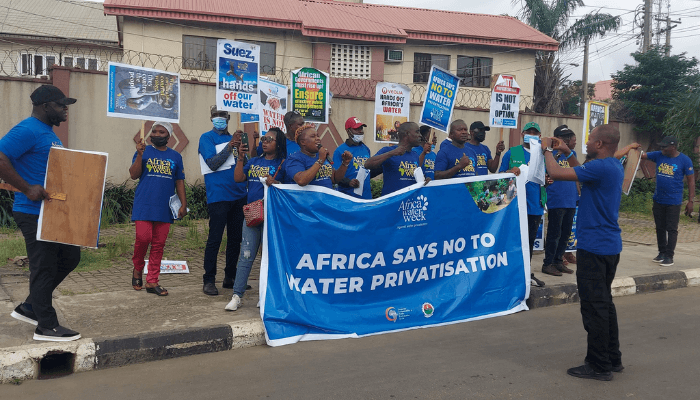OWORAC Stands with Ghanaians in Fight Against Galamsey, Calls for Urgent Action to Save Water Sources
The coalition insists that the government must prioritize the well-being of its people over political gains and take responsible action to end the poisoning of the country’s water bodies and the destruction of livelihoods.
- Advertisement -
The Our Water Our Right Coalition (OWORAC) has expressed solidarity with Ghanaians in their ongoing fight against the devastating effects of illegal mining, known locally as “galamsey,” which continues to wreak havoc on the country’s water bodies, farmlands, and public health. In a strongly worded statement, OWORAC has called on Ghanaian authorities to take immediate and decisive steps to halt the pollution of rivers and protect the human right to clean, safe drinking water.
The group highlighted the serious environmental and health impacts of illegal mining activities, pointing to the use of hazardous chemicals like mercury and cyanide, which have contaminated critical water sources such as the Densu, Birim, Pra, Ankobra, and Tano rivers. These once-vital rivers now flow with toxic chemicals, exposing communities that rely on them to severe health risks. The coalition warns that the destruction of aquatic life and agricultural lands has already led to the loss of livelihoods for local farmers and fishermen, exacerbating economic hardship.
- Advertisement -
In the Bibiani-Anhwiaso-Bekwai district, a hub of illegal mining, medical experts have linked reproductive health issues, including congenital disabilities, to the presence of heavy metals like cyanide and mercury in the placentas of pregnant women. This revelation, according to OWORAC, further underscores the grave health consequences of galamsey for vulnerable communities.
- Advertisement -
The Ghana Water Company Limited (GWCL) has been forced to shut down several water treatment plants due to the contamination of water sources, leading to widespread water shortages and increased tariffs. Experts warn that if the situation remains unchecked, Ghana may face the dire prospect of having to import water by 2030.
OWORAC criticized the Ghanaian government’s response to the crisis, condemning the arrest and harassment of citizens and protesters demanding action against galamsey. The coalition called the state’s approach repressive and urged the government to declare a state of emergency on all mining activities near water bodies.
- Advertisement -
The group also pointed to the lack of political will to address the issue, despite numerous promises. OWORAC cited government-backed political figures who have openly stated that cracking down on illegal mining could jeopardize their electoral chances in the upcoming general elections, a stance the coalition described as selfish and a betrayal of the public trust.
In its statement, OWORAC demanded that the government immediately begin efforts to clean up polluted water sources and rehabilitate damaged lands. It also called for the enforcement of strict regulations on mining operations and for those responsible for the ecological damage to be held accountable. The coalition emphasized that protecting Ghana’s water sources and ensuring a healthy environment are crucial for safeguarding the human rights and well-being of all Ghanaians.
OWORAC’s statement was signed by several prominent environmental and human rights organizations from across Africa, including representatives from Ghana, Nigeria, Gabon, Cameroon, Kenya, and Senegal, underscoring the international support for Ghana’s fight against illegal mining.
The coalition insists that the government must prioritize the well-being of its people over political gains and take responsible action to end the poisoning of the country’s water bodies and the destruction of livelihoods.
Source: ghananewsonline.com.gh
- Advertisement -


